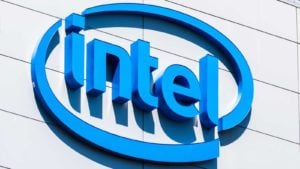A lot of microchip and semiconductor companies have exploded this year with their share prices doubling and even tripling. Up more than 210% since January, chip designer Nvidia (NASDAQ:NVDA) was the best-performing stock in the benchmark S&P 500 index during this year’s first half. Shares of Advanced Micro Devices (NASDAQ:AMD), another leading chip company, are up 80% year to date.
While the gains have been impressive, they have not been equal. Some chipmakers have struggled mightily in the current environment. The winning chip stocks have been those most associated with artificial intelligence. In comparison, chipmakers focused on wireless technology and other applications have not fared as well. A few semiconductor companies face major hurdles and structural problems that threaten to derail them permanently. Here is why these three stocks are the worst ways to play semiconductors right now.
Taiwan Semiconductor Manufacturing Co. (TSM)

Warren Buffett made headlines last fall for taking a $4.1 billion stake in Taiwan Semiconductor Manufacturing (NYSE:TSM), the world’s leading semiconductor and microchip fabrication company. About 60% of all semiconductors in the world are manufactured by Taiwan Semiconductor.
However, Buffett again made headlines this spring when he sold his entire stake in TSM stock, barely holding the position for six months. In interviews, Buffett alluded to the geopolitical tensions over Taiwan, and the fact that China claims ownership of the tiny island nation, as why he quickly changed his mind about investing in TSM stock. “Marvelous people and marvelous competitive position and everything, [but] I’d rather find it in the United States,” Buffett said diplomatically when asked why he dumped TSM stock. Other investors may also want to be cautious.
TSM stock has gained 29% over the past year and is up 178% through five years.
Intel Corp. (INTC)

Once a leading light of the global semiconductor industry, Intel (NASDAQ:INTC) has fallen on hard times. The problems stem from the fact that Intel is trying to become the next Taiwan Semiconductor. The company is pivoting its business away from designing microchips and semiconductors internally to fabricating chips and semis for third parties. This is requiring a massive investment that has led to a lot of red ink at Intel.
In late June, Intel announced plans to spend $33 billion to build two new chip fabrication plants in Germany. Earlier in June, the company announced a $4.6 billion chip plant in Poland and a $25 billion factory in Israel. The company is spending even more money to build chip plants in the U.S. The end result of all this spending? At the end of April, Intel reported the biggest quarterly loss in its 55-year history.
INTC stock is down 9% over the last 12 months and has declined 35% over five years.
Qualcomm (QCOM)

Another legacy semiconductor company that is struggling to keep its head above water is Qualcomm (NASDAQ: QCOM). The company makes chips and semiconductors that are used primarily in wireless networks, enabling smartphones and wireless internet over other devices. In business since 1985, QCOM stock has struggled over the past year, losing 10% of its value while other semiconductor stocks have doubled their share price.
QCOM stock hasn’t been the same since iPhone maker Apple (NASDAQ:AAPL) announced plans to begin making its own microchips and semiconductors internally. The two companies are now embroiled in a nasty lawsuit. Additionally, many companies have shelved their plans to upgrade to fifth generation (5G) wireless, holding back on their capital spending while they wait to see if a recession materializes.
On the date of publication, Joel Baglole held long positions in NVDA and AAPL. The opinions expressed in this article are those of the writer, subject to the InvestorPlace.com Publishing Guidelines.
